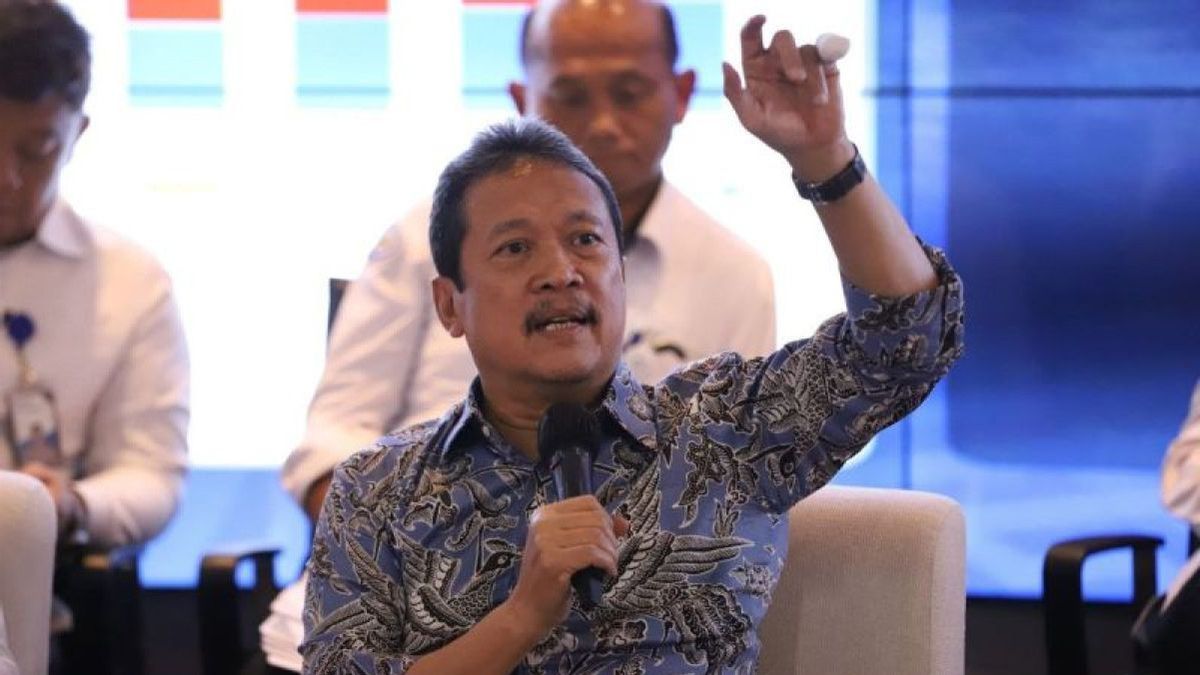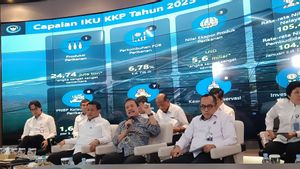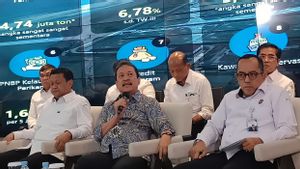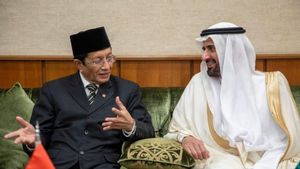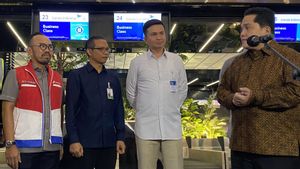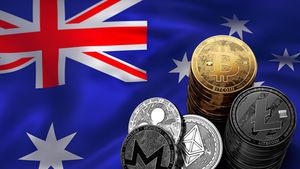JAKARTA - The Ministry of Maritime Affairs and Fisheries (KKP) targets the export value of fishery products to reach 7.20 billion US dollars or around Rp. 112.1 trillion in 2024.
This figure increased significantly compared to the realization of fishery product exports until November 2023, which only reached 5.6 billion US dollars or equivalent to IDR 87.25 trillion.
Meanwhile, fishery production in 2024 is targeted to be in the position of 30.85 million tons. That target is higher than the realization of the previous year, which was 24.74 million tons.
Minister of Maritime Affairs and Fisheries (KP) Sakti Wahyu Trenggono also targets the growth of Indonesia's fishery Domestic Product (GDP) to reach 5-6 percent.
As for the third quarter of 2023, GDP fisheries has reached 6.78 percent.
"Towards 7.20 billion US dollars is still relevant, we can pursue it (in 2024)," Trenggono said at the Outlook Press Conference & Priority Program for the Marine and Fisheries Sector at the KKP Building, Jakarta, Wednesday, January 10.
He added that the fishermen's exchange rate is also expected to increase slightly from the 2023 period, which is 105.40 percent.
This year, the fishermen's exchange rate is targeted to reach the 108 percent position.
Meanwhile, the fish cultivators exchange rate is targeted to reach 105 percent. Then, the fish export ratio from fishery products received by export destination countries is also predicted to reach 99 percent.
"Salt production is targeted to reach two million tons, the fish consumption rate is targeted at 59 kg per capita/year, the sea conservation area is targeted to reach 29.30 million hectares (ha), the completion of sea space arrangement and coastal zoning is targeted in 21 areas and the proportion of fish fishing which is within safe biological limits is targeted at more than 80 percent," he said.
He said that the overall target would be achieved in line with the five KKP priority programs.
SEE ALSO:
The five programs are expanding marine conservation areas, fishing measurably based on quotas, developing aquaculture in the sea, coastal and land.
Then the supervision and control of coastal areas and small islands as well as cleaning up plastic waste in the sea through the fishermen's participation movement.
"Indonesia must be able to become the champion and will become the fourth largest economic force in the world," he added.
The English, Chinese, Japanese, Arabic, and French versions are automatically generated by the AI. So there may still be inaccuracies in translating, please always see Indonesian as our main language. (system supported by DigitalSiber.id)
